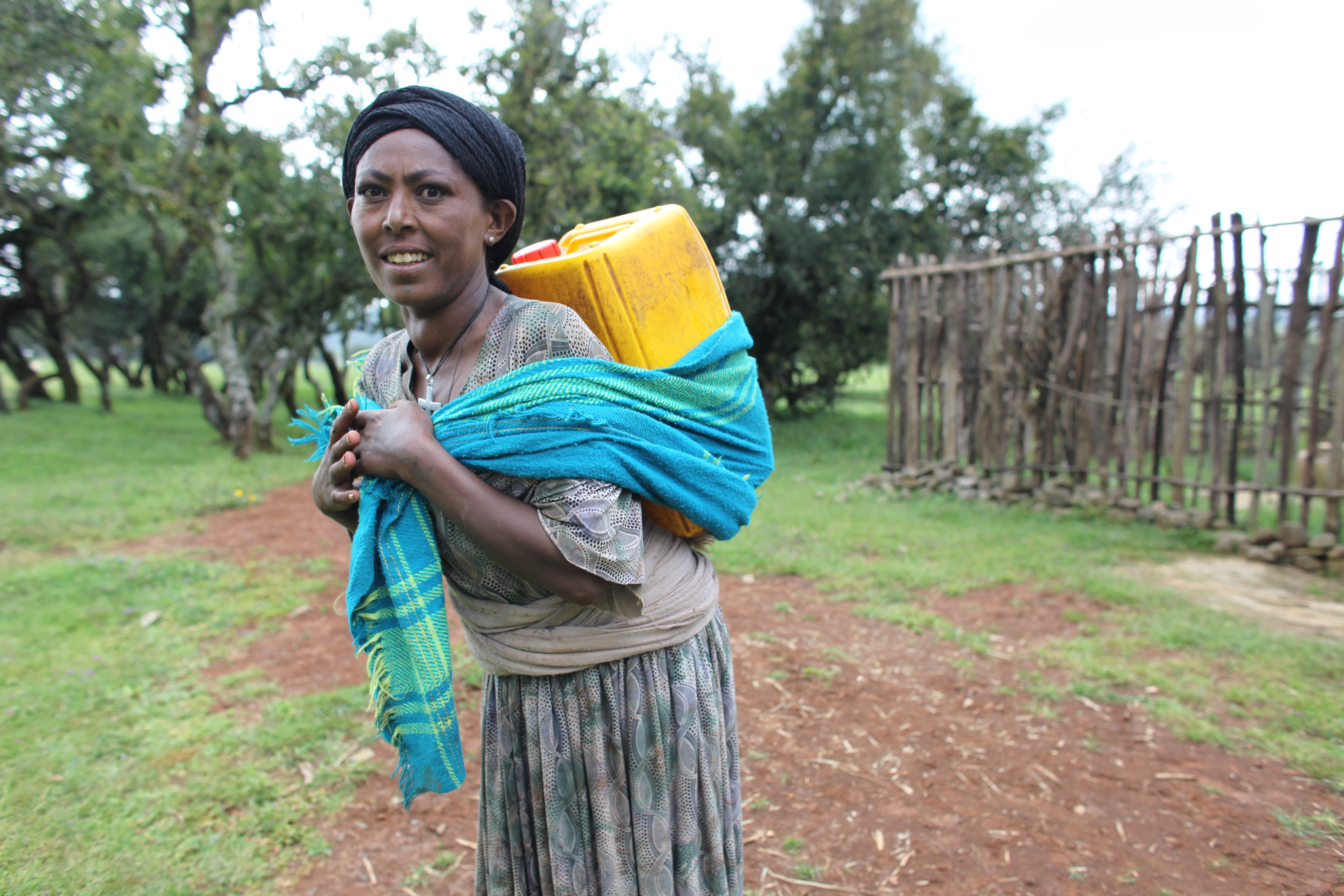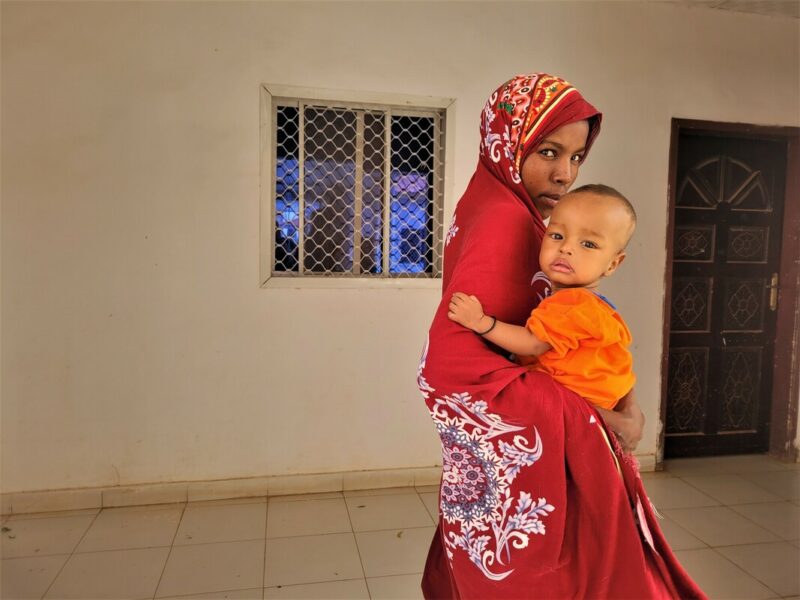By Amelia Poxon, CARE Australia Communications Coordinator
In the highlands of Ethiopia, 37-year-old Yalemie is helping her husband, her four children and her whole community to improve their health and their future.
Yalemie is a member of her village’s Water Committee, established through CARE’s water, sanitation and hygiene project. Her role in the committee is to be the pump attendant – she maintains and repairs the water pump that her village worked with CARE to build.
‘I am happy because I have benefited from pure water. I know about the parts of the pump and I can maintain them. Before, I didn’t know anything about hand pumps or pure water,’ she says.
Before the pump was here, Yalemie would walk for two hours to the river twice a day to collect water for her family. Often, her daughter would miss school so that she could help her mother make the long journey with heavy water containers.

‘I fetched water from the river like the animals – we drank together with dogs, donkeys and horses. There were diseases like diarrhoea, particularly in the children. One of the older women who is now in our Committee was very sick from drinking the water. When she went to the health facility, the doctor said “you are sick because you drank dirty water”. She was vomiting, and had diarrhoea.’
‘Now, I walk 250 metres to the hand pump to get safe water. This scheme saves us a lot of time, and we are happy because our health is also saved.’
Yalemie maintains the 17 metre-deep hand pump which provides safe water to her village. The community provided the labour and local resources and CARE stepped in to provide advice and foreign materials when required. Yalemie and the six other members of the Water Committee maintain the pump and introduced by-laws that set fines for any mistreatment. This system ensures that there is local ownership of their new resource.
In addition to providing and maintaining clean water for the community, the Water Committee also learn about important behaviours to maintain health and hygiene, including: using toilets, washing hands, vaccinating children, disposing of waste in rubbish pits, cleaning utensils and practicing good personal hygiene.
Yalemie has applied this knowledge in her own home. Now, her family proudly boasts a new toilet, a hand washing basin and a shower. Yalemie opens up her home for her neighbours to view these self-made additions and gives her visitors advice about improving their own family’s health and hygiene.
‘I am happy that I can provide hygiene education for the community through modeling my home. First, I teach my family and then community about hygiene and sanitation, and then I will teach the whole village.’

CARE realised that the Water Committee’s regular meetings were also the perfect opportunity for increasing each individual’s income through the power of group savings. Each month, the members contribute 6 birr (32 cents), and as the total climbs members can take a loan for productive activities, which is then paid back with interest.
Yalemie has not taken a loan yet, but she is planning to take one soon to start her own poultry business. Despite not receiving any money from the group yet, she is already benefiting from the scheme in ways she had never imagined.
‘I have learnt now that a woman can earn and decide about her own money. We can start our own business in our own village. Women have money and the right to decide how to spend it. Before, only men could do this.’
Yalemie’s husband is supportive of her role in the Committee, and the improvements she has made to his family’s health and opportunities.
‘My husband was not happy before, now he his happy because the community has had discussions with CARE about the different roles of men and women. Before, only women fetched the water, now the men in the family help as well, and we are both happy.’
Over the past 18 months, Yalemie’s role in her community has changed dramatically. She is now the person responsible for sustaining her community’s access to safe water; the person who teaches her entire village about health and hygiene; and a contributor to the savings pool that is helping her peers realise their dreams as business owners.
Yet, despite all of her achievements, there is one role that Yalemie values above all others, and that is her role as a mother.
‘My family is healthy, and that is so important to me. Even though I am not educated, I now know there is something I can teach my children. I now have hope that my children will get a good job rather than being a farmer like me.’
From 16-22 March 2015, you can join thousands of Australians taking part in CARE Australia’s Walk In Her Shoes Challenge. The money you raise by taking part will help fund CARE projects that help women, girls and entire communities overcome the devastating cycle of poverty.
To take the first step, simply register online at walkinhershoes.org.au.


